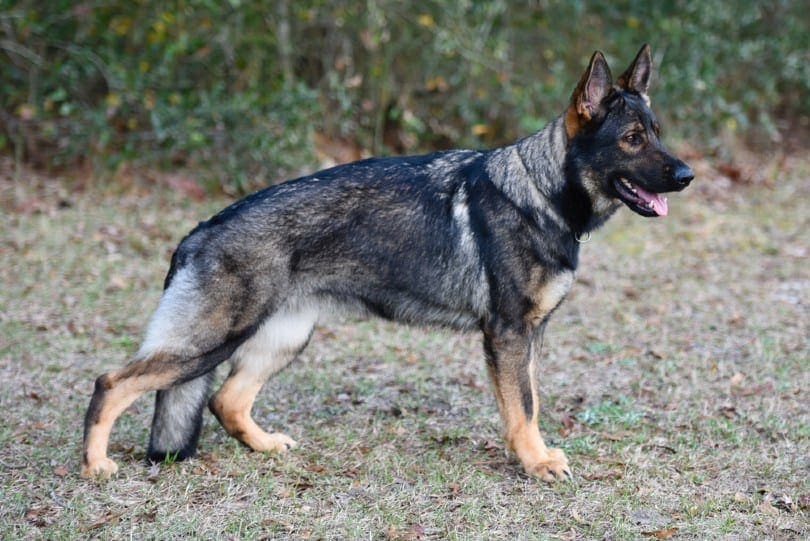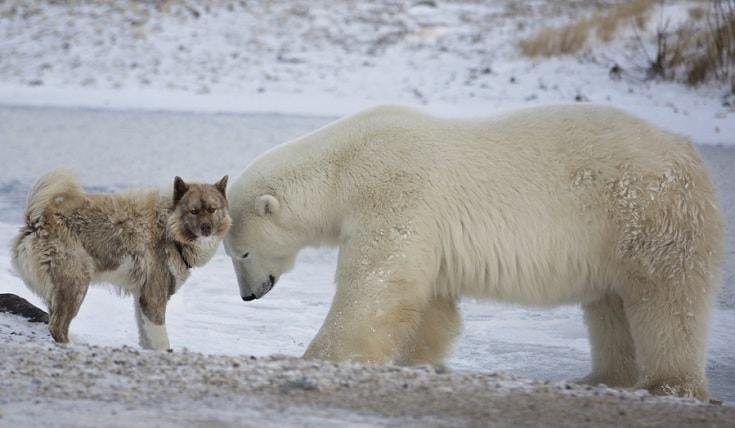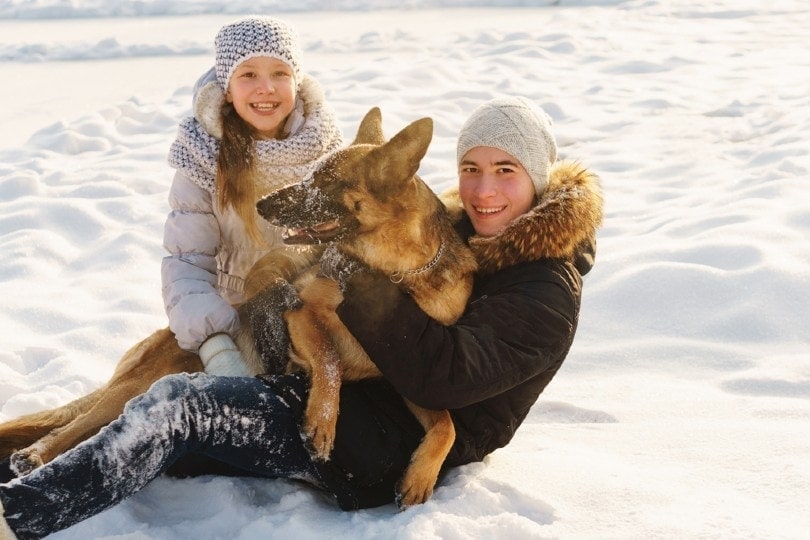How to Help Your Dog Gain Weight: Vet Reviewed Facts & FAQs

Updated on

If you’ve noticed your dog looking a little bit skinny lately, or you’ve recently taken on an underweight rescue dog, you might be looking for some tips to get your dog to gain weight safely and healthily.
Is your dog underweight?
First, it’s important to make sure your dog is actually underweight. Unfortunately, so many dogs are overweight that our mental image of what a dog should look like has become skewed, and a lot of people are led to believe their perfectly healthy dogs are underweight.
It’s also important to remember that every dog is different, and it’s impossible to say what the correct weight for a dog is without looking at them. Expected weight charts for each breed are quite harmful- even within a breed there’s so much variation that no one weight can be considered ideal. There are big Labradors, small Labradors… and an awful lot of obese Labradors, meaning any breed average is unlikely to be of use.
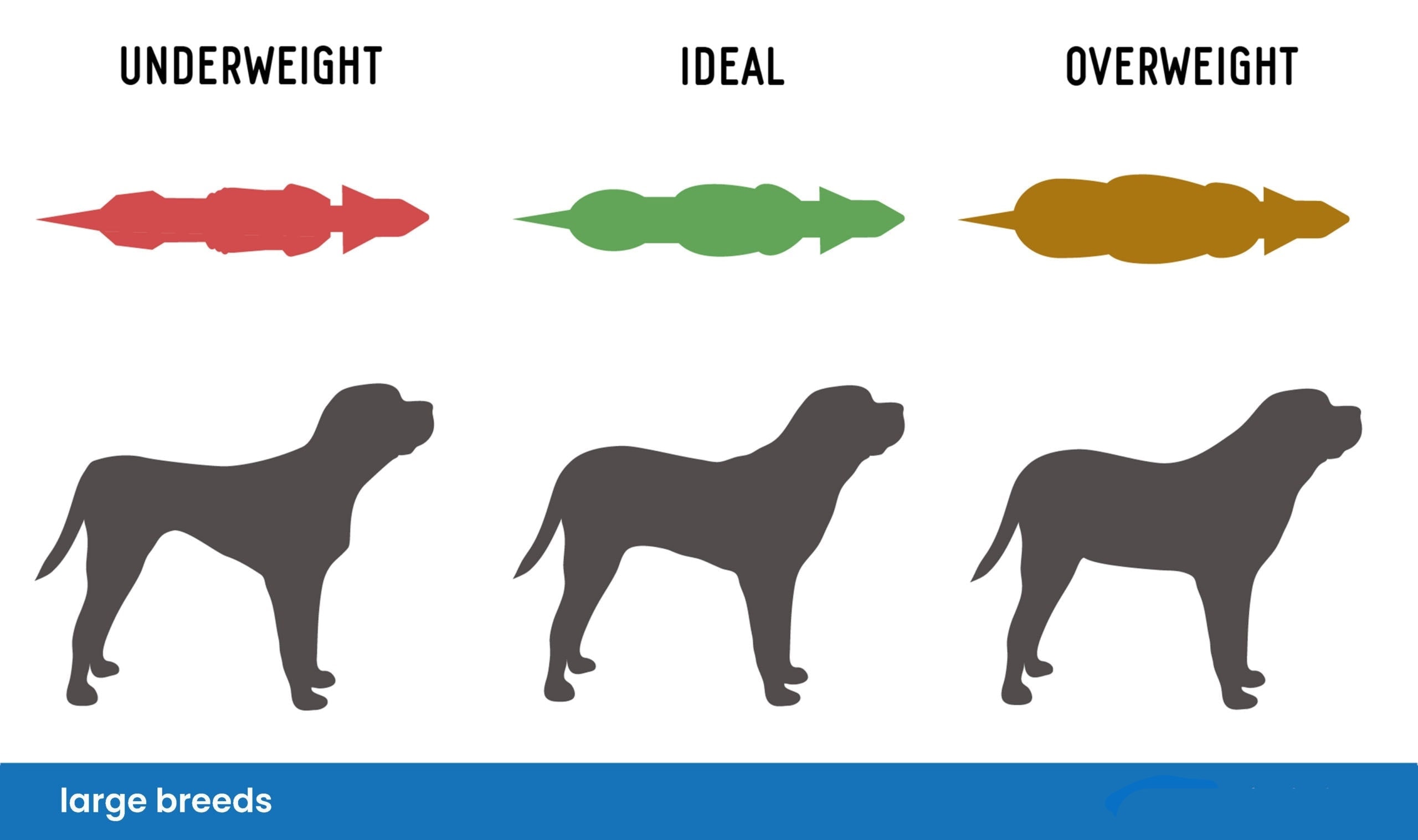
Check your dog’s BCS
Instead, vets like to use the Body Condition Score (BCS) to evaluate whether your dog is the ideal weight. This involves feeling your dog’s body in three easy places and assessing their body fat to help you decide if your pet is a normal weight. Pets are given a score of 1-5 (where 3 is ideal) or 1-9 (where 4-5 is ideal).
While you can learn to do this yourself, research has shown that there can be a lot of variation when people first learn to take a body condition score, so asking your local veterinary practice for help might be useful to begin with. You can learn to Body Condition Score using the WSAVA sheet here.
How underweight is your dog?
Once you have decided your dog is underweight, the next thing to decide is how underweight they are. On a scoring system of 1-9, each point that your dog is under 4 is 10% of their body weight that they are missing. So, a dog with a body condition score of 2 is 20% under ideal body weight, and a dog with a body condition score of 3 is 10% underweight. Using this, you can calculate your dog’s ideal weight.
What sort of foods can you feed your dog to help them to gain weight?
Most underweight dogs will gain weight quite easily once they are being fed a high-quality diet. Usually, any dog food, fed in the right proportions, will do. For dogs that are very energetic and spend most of their day working, a high-calorie working dog food might be necessary to keep the weight on them. In general, it’s best to stick to dog food, as this has been carefully balanced. Both the excess and deficiency of specific micronutrients can lead to disease, so it’s important to try to keep the diet balanced.
Don’t forget you can also add up to 10% of a dog’s daily calorie allowance in ‘extras’ or healthy treats. Chopped boiled chicken breast, small amounts of xylitol-free peanut butter, tiny cubes of cheese (caution: many dogs are lactose intolerant) and dried salmon skin treats may be suitable extras to help dogs to gain weight.
My dog isn’t interested in his food, how can I help?
Some dogs will just self-regulate their food intake and stop eating when they don’t need anymore. This is pretty rare, but it’s not uncommon for small terrier breeds to be a bit on-off or ‘take it or leave it’ with their eating. Most of these dogs are not underweight, but sometimes their self-regulation is set a little low, and these dogs need to be tricked into eating a little more. Making them do tricks and then giving treats, adding protein toppers to their food, or giving them a small amount of dog-safe ‘people food’ in their bowl usually does the trick.
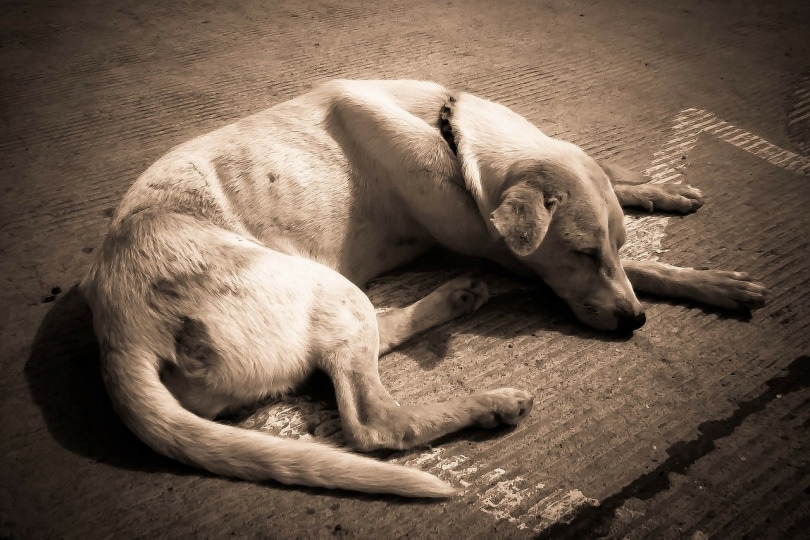
Should I stop my dog exercising to help them to gain weight?
For the majority of dogs, exercise is paramount to their health and mental health, and it’s important to allow them some exercise. As with humans, eating more without exercise will cause an increase in fat levels, not in muscle- which isn’t a good idea. Only a very few dogs should have a reduction in their exercise to encourage weight gain – usually dogs that are so starved they can hardly walk anyway- and for most dogs this isn’t recommended.
Why isn’t my dog gaining weight?
Of course, if your dog continues to lose weight or struggles to gain weight, there could be a medical condition that’s causing problems. Depending on your dog’s other symptoms, there are lots of things that could cause your dog to become unable to gain weight.
- Diabetes is not uncommon in dogs, and the symptoms can be quite confusing- dogs are often ravenous but start to lose weight. Other symptoms include drinking more and urinating more frequently.
- Kidney disease has similar symptoms, but without a strong appetite, and occurs in about 1 in 10 older dogs, so maybe the reason that your senior dog is losing or is unable to gain weight.
- If your dog has diarrhea as well as being unable to gain weight, there are a lot of things that could be causing the problems. This is because diarrhea usually means the food is moving through too quickly, and it is not being digested properly. Exocrine pancreatic insufficiency, small intestinal bacterial dysbiosis, cancer, and even severe irritable bowel disease can cause diarrhea severe enough that dogs are unable to gain weight.
When should I see the veterinarian about my dog’s weight?
If you have recently picked up a dog that is severely underweight, it is important that they don’t get fed too quickly, as they can get extremely ill and die from ‘refeeding syndrome’. If you think your new dog is severely underweight, you should take it to your veterinarian to try to establish why, and to get a proper program to feed the dog up safely.
If you have a dog that struggles to gain weight but is just on the slimmer side of normal, it’s important to consider whether they need to gain weight at all, and your veterinarian can help you to decide this. It may be that your dog just has a slim body type and isn’t interested in overeating – something I bet most of us wish for! And your vet can help you to determine whether this is the case.
Conclusion
Once you’ve determined that your dog is actually underweight, and assuming there are no health conditions to stop them from gaining weight, the vast majority of dogs will gain by eating a little more of their normal food – perhaps as a third meal in the day. You shouldn’t stop their exercise unless instructed to by your veterinarian, as it’s important for their mental and physical health. For those dogs that are a little more resistant to gaining weight, extra treats and high protein toppers are usually enough, but you should see your veterinarian if they’re struggling.
Featured Image Credit: Phuttharak, Shutterstock




